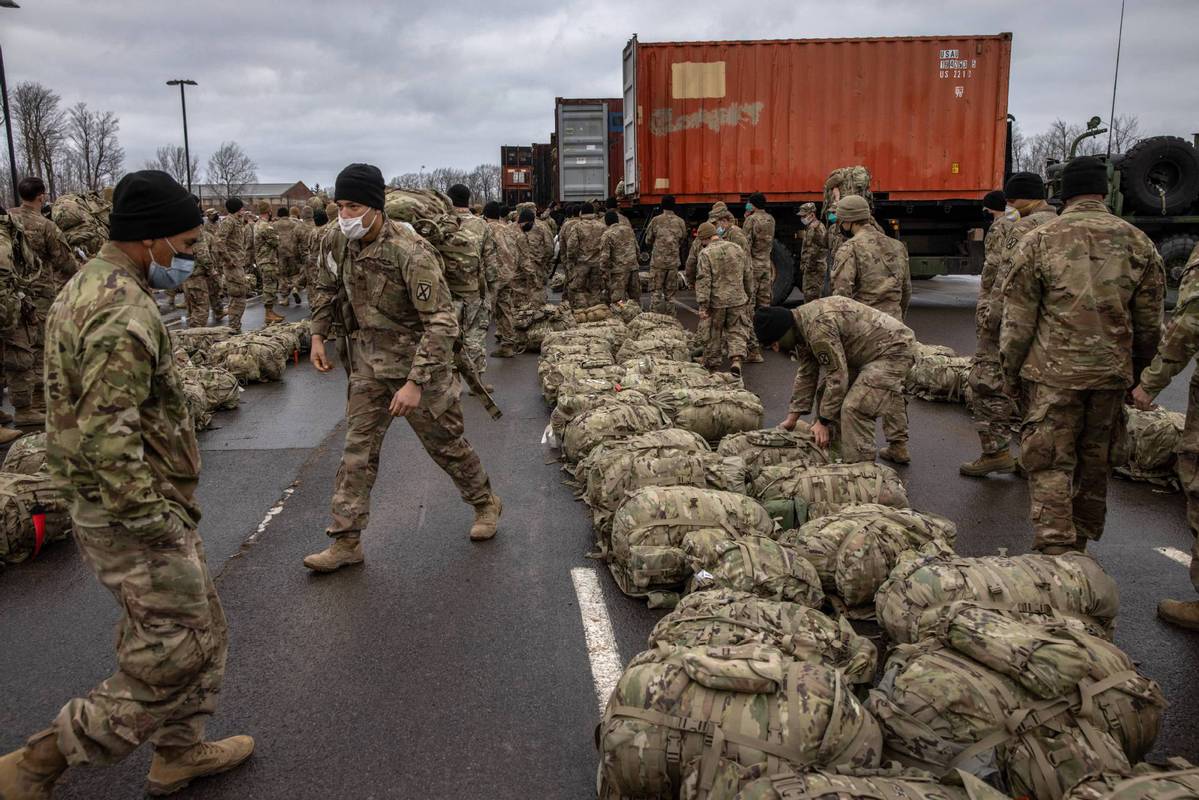US plans Sept 11 Afghanistan withdrawal
By HENG WEILI in New York | China Daily Global | Updated: 2021-04-14 03:23

The US military went to Afghanistan after the 9/11 terrorist attacks, and now on that date two decades later, the troops will be withdrawn.
The withdrawal of the remaining 2,500 American troops, which is expected to be announced by President Joe Biden on Wednesday, will conclude the longest war in American history.
The need for a continued military presence has long been a contentious issue in US politics, particularly in light of the killing in 2011 of al-Qaida mastermind Osama bin Laden (in Pakistan) in a raid by US Navy Seals.
The decision also defies a May 1 deadline for full withdrawal under a peace agreement the Trump administration reached with the Taliban last year but leaves no room for additional extensions. A senior Biden administration official called the September date an absolute deadline that won't be affected by security conditions in the country.
Biden will publicly announce his decision on Wednesday, the White House said. An administration official said the pullout would begin before May 1 and could be completed before the Sept 11 deadline.
"The president has judged that a conditions-based approach, which has been the approach of the past two decades, is a recipe in staying in Afghanistan forever," said the official, speaking on condition of anonymity.
"The president has been consistent in his view that there's not a military solution to Afghanistan — that we have been there for far too long," White House press secretary Jen Psaki told reporters Tuesday. "He also believes we need to focus our resources on fighting the threats we face today, almost 20 years after the war began."
The Taliban, a Sunni Islamic political movement and military organization, however, does not support the extended deadline for withdrawal.
"We are not agreeing with delay after May 1," Zabihullah Mujahid, a Taliban spokesman, said on local television. "Any delay after May 1 is not acceptable for us."
More than 2,400 American troops have been killed and 20,000 wounded in a military operation that has cost nearly $1 trillion to wage. The US troop presence in Afghanistan, a mountainous, landlocked country whose northeastern area borders China, peaked at more than 100,000 in 2011.
A study by Brown University estimated that 43,000 civilians have been killed in the ongoing conflict in Afghanistan. A United Nations report issued last year estimated that more than 35,000 civilians were killed from 2001 to 2019.
On Sept 11, 2001, al-Qaida-affiliated hijackers slammed airplanes into the World Trade Center in New York City and the Pentagon outside Washington. A third hijacked plane went down when passengers stormed the cockpit over Pennsylvania. The three attacks killed nearly 3,000 people.
Disagreement over the withdrawal plan surfaced as soon as it was announced.
US Senator Jeanne Shaheen, a New Hampshire Democrat who sits on the Senate Foreign Relations Committee and is a longtime advocate of women's rights, said on Twitter on Tuesday that she was "very disappointed in @POTUS' decision to set a Sept. deadline to walk away from Afghanistan".
"Although this decision was made in coordination w/our allies, the U.S. has sacrificed too much to bring stability to Afghanistan to leave w/o verifiable assurances of a secure future," she wrote. "It undermines our commitment to the Afghan people, particularly Afghan women."
Senate Minority Leader Mitch McConnell, Republican of Kentucky, accused the Biden administration of making a "grave mistake" to "turn tail and abandon the fight" in Afghanistan.
"It is retreat in the face of an enemy that has not yet been vanquished and abdication of American leadership," he said on the Senate floor Tuesday. "Leaders in both parties, including me, offered criticism when the prior administration floated the concept of a reckless withdrawal from Syria and Afghanistan."
Senator Lindsey Graham, a South Carolina Republican who repeatedly criticized the Obama administration's withdrawal from Iraq and troop drawdowns in Afghanistan, said a full withdrawal was "dumber than dirt and devilishly dangerous".
"President Biden will have, in essence, canceled an insurance policy against another 9/11," Graham said.
Senator Elizabeth Warren, a Massachusetts Democrat, said: "For nearly 20 years, we have adopted a costly war-based approach to national security and counterterrorism policy with no clear endgame. While our withdrawal comes years late, President Biden recognizes the reality that our continued presence there does not make the US or the world safer."
Senate Foreign Relations Chairman Robert Menendez of New Jersey told reporters Tuesday that he wants to get troops home but is worried "we don't lose what we were seeking to achieve".
"I certainly will not be supportive of any assistance to Afghanistan if there is backsliding on civil society, the rights that women have been able to achieve," said Menendez, who also said he was concerned about the Taliban meeting its obligations.
The disclosure of the withdrawal plan came on the same day that the US intelligence community released a dim outlook on Afghanistan, warning that its government would struggle to hold the Taliban insurgency at bay if the US-led coalition withdraws support.
Intelligence analysts said that the prospects for a peace deal between the Afghan government and the Taliban "will remain low" for the coming year.
"Kabul (the capital) continues to face setbacks on the battlefield, and the Taliban is confident it can achieve military victory," according to the report from the Office of the Director of National Intelligence (ODNI).
The ODNI report, known as the Annual Threat Assessment, was released before word of the planned withdrawal.
David Petraeus, a retired US general and former CIA director, also has warned that the withdrawal "could prove quite catastrophic".
"We shouldn't be so US-centric as to think that just by withdrawing our forces that the war ends," Petraeus told Voice of America's Press Conference USA on April 6.
US Secretary of State Antony Blinken and US Defense Secretary Lloyd Austin are expected to discuss the decision with NATO allies in Brussels on Wednesday, sources said.
Ai Heping in New York and agencies contributed to this story.























